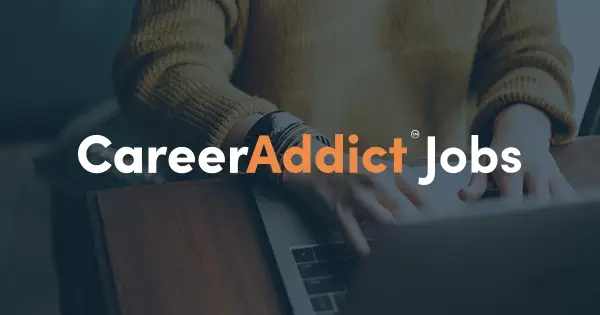- Career Insider
- Posts
- Do I need a career coach?
Do I need a career coach?
If you're feeling like your career isn't working for you, talking with a career coach might be exactly what you need. Maybe. Here's how to decide.

Welcome to Career Insider. What’s the first thought that comes to mind when you hear the phrase “career coach”?
For a lot of people, it’s probably something like this:
“Pfff, I don’t need a coach!”
Don’t be so quick to dismiss career coaches. If you think your career isn’t working out the way you expected, hiring a skilled coach could be exactly what you need.
TODAY’S SPONSOR
This cannabis startup pioneered “rapid onset” gummies
Most people prefer to smoke cannabis but that isn’t an option if you’re at work or in public.
That’s why we were so excited when we found out about Mood’s new Rapid Onset THC Gummies. They can take effect in as little as 5 minutes without the need for a lighter, lingering smells or any coughing.
Nobody will ever know you’re enjoying some THC.
We recommend you try them out because they offer a 100% money-back guarantee. And for a limited time, you can receive 20% off with code FIRST20.
CAREERS
When to hire a career coach

If you're feeling like your career isn't working for you, talking with a career coach might be exactly what you need. Maybe. Here's how to decide.
First, who are career coaches? Career coaches are professional guides who help you navigate the complexities of your careers. They act as strategic partners, working with you to identify your strengths, values, and aspirations.
They provide support in exploring career options, overcoming roadblocks, and developing essential skills such as resume writing, networking, and interviewing.
So, do you need a career coach?
Here are some pros and cons to consider:
Pros:
Objective Perspective: A career coach can provide an unbiased perspective on your skills, experience, and career goals.
Goal Setting and Action Plan: They can help you set realistic goals and create a concrete action plan to achieve them.
Accountability and Motivation: A coach provides regular check-ins, keeping you accountable to your goals and motivated to keep moving forward.
Networking and Job Search Strategies: They can offer valuable advice on networking, resume building, interview skills, and overall job search strategies.
Confidence Boost: Working with a coach can boost your confidence and help you overcome self-doubt.
Cons:
Cost: Career coaching can be expensive.
Time Commitment: It requires a significant time commitment to meet with your coach and work on the action plan.
Finding the Right Coach: It's crucial to find a coach who is a good fit for your personality and career goals.
To help you decide, consider these questions:
What are your specific career goals? Are you looking for a promotion, a career change, or simply more clarity on your career path?
What resources are available to you through your current employer or network? Could you benefit from mentorship or training programs?
What is your budget? Can you afford the cost of a career coach?
Ultimately, the decision of whether or not to hire a career coach is a personal one. Weigh the pros and cons carefully and consider your individual circumstances.
If you think a coach is right for you, here’s how to find a good one.
Online Directories: Websites like CareerCoachDirectory.com, Noomii.com, and the International Association of Career Coaches (IACC) have searchable databases of certified career coaches. You can filter by location, specialty, and more.
Professional Networking: Ask your network if they have recommendations for career coaches. Reach out to former colleagues, mentors, or LinkedIn connections.
LinkedIn: Search LinkedIn for "Career Coach" and filter by location. You can browse profiles, read recommendations, and even message coaches directly.
Local Universities and Colleges: Many universities and colleges offer career counseling services, and some may have career coaches on staff or a list of recommended coaches in the area.
Professional Organizations: If you're in a specific industry, check with professional organizations in your field. They may offer career coaching resources or referrals.
JOBS
Are job fairs still worth it?

When’s the last time you’ve been to a job fair? It’s probably been a while, but they can still be a value opportunity to find a new gig.
There are so many benefits to attending a job fair, including:
Networking Opportunities: Job fairs provide a chance to meet and network with recruiters, hiring managers, and other job seekers. This can lead to valuable connections and insights into the job market.
Direct Interaction: You have the opportunity to speak directly with company representatives, which can give you a better understanding of the company culture and what they are looking for in candidates.
Access to Multiple Employers: Job fairs often host a variety of companies from different industries, allowing you to explore multiple opportunities in one place.
Immediate Feedback: You can receive immediate feedback on your resume and interview skills, which can be helpful for improving your job search strategy.
Learning Experience: Attending a job fair can help you learn more about the job market, industry trends, and the types of roles available.
Going to a job fair?
Preparing for a job fair involves several steps to ensure you make a strong impression and maximize your opportunities.
First, research the companies that will be attending the fair. This will help you prioritize which booths to visit and tailor your approach to each employer.
Update your resume to reflect your most recent experiences and accomplishments, and print multiple copies to distribute to potential employers. It's also beneficial to prepare a concise elevator pitch that highlights your skills, experiences, and what you are looking for in a job.
On the day of the job fair, dress professionally to make a positive first impression. Business attire is typically appropriate, as it shows you are serious about your job.
Arrive early to avoid long lines and to have ample time to visit all the booths on your list. Bring a notepad and pen to jot down important information and contact details.
After the fair, follow up with the contacts you made by sending personalized thank-you emails, reiterating your interest, and referencing specific conversations you had. This follow-up can help keep you top of mind as employers make hiring decisions.
Overall, job fairs can be a valuable part of your job search strategy if you approach them with clear goals and preparation.
NEWS
Amazon employees…umm…aren’t happy

The tech giant, known for its innovative work culture and flexible remote work policies, had recently announced a significant shift.
The shift? Beginning in January, employees are to return to the office five days a week. This decision sent ripples through the company, sparking a mix of emotions among its vast workforce.
Amazon is also nixing managers in favor of individual contributors (workers), hopefully decreasing bureacrazy.
Amazon CEO Andy Jassy sent a memo to the company:
“…we’ve decided that we’re going to return to being in the office the way we were before the onset of COVID. When we look back over the last five years, we continue to believe that the advantages of being together in the office are significant.”
Jassy continued:
“We are also going to bring back assigned desk arrangements in locations that were previously organized that way, including the U.S. headquarters locations (Puget Sound and Arlington).”
Read the entire memo here.


